
A New Threat
The Psygen Chronicles, Book One
by Aaron DeMott
Introduction
Finalist – 2015 Realm Makers Genre Award In Science Fiction
When an alien ship lands unexpectedly in the middle of her clan’s territory, Bast is sent to investigate as part of her scout trial. After an accident, she meets these new visitors. She and her senior scout Rrrark are invited to return with the aliens to their home planet to open diplomatic relations. What started out as a simple diplomatic mission becomes complicated when they discover a pirate scheme that might be more than it seems. Only Bast, Rrrark, and two of the aliens called Pysgens are capable of stopping the pirates.
Excerpt
Prologue
Tomed bolted upright out of a deep sleep. He swung his feet from the bed and pulled the bottom of his shipsuit over his legs. Something had woke him, but what? He rubbed his eyes and cast his gaze around the room. The room looked normal enough. Gray walls and beige carpet, a generic painting on the wall to the right, all normal for a stateroom on a Hiem-class starship. The air circulator hummed along with a steady rhythm. Even the door that led from the bedroom to the rest of the suite was still cracked open just as he had left it.
Tomed sensed nothing in his room. He frowned, extended his consciousness outward, and felt the alarm of the bridge crew a moment before the red alert klaxon sounded. He pushed his arms into his shipsuit and cashed out of his cabin before he had finished zipping it up.
The bridge was controlled chaos. A dim light pulsed red when the alert siren sounded. The voices of the bridge crew mulled together as all of them hollered out damage reports and status updates.
“We’re venting atmosphere!” an officer called out.
“Engines are still offline!”
Tomed pressed himself against the doorpost at the rear of the bridge until he was needed. The damage assessment station and the engineering monitor were to his left and right. The weapons control station and sensor station, the captain and the first officer’s stations and the navigation and helm controls were in rows ahead of him. The Main Holographic Display, or MHD, dominated the very front of the bridge. It currently displayed a three-dimensional hologram of his ship, the Goddard, with several areas highlighted in red.
Captain Trenton stood behind a frazzled-looking lieutenant and stared over her shoulder at the damage assessment station. He finished double-checking her readout, then glanced up at Tomed.
“Good morning, Psygen. I’m afraid we’ll have a slight delay in getting you to the conference as SeQish.”
“Well, it can’t be helped. My presence there is more a formality than anything else.” Tomed shrugged. “Looks like I slept through all the fun. What’s the situation?”
“Well, we had a surprise visit from a pirate ship.” The captain raised an eyebrow and cocked his head slightly to the side.
Tomed frowned. It looked like the captain expected some kind of reaction from the statement. There was something about pirate activity in this sector that should ring a bell . . .
Tomed really wished he had a cup of coffee, he’d never been able to think clearly in the morning, and it was somewhere around sixâat least, it was in the last time zone he’d been in. He shook his head and willed himself to wake up.
“I think,” he replied, “the latest report said that there wasn’t any pirate activity in this sector since the new resort opened over at Antar. Shouldn’t all the pirates be over there?”
Captain Trenton chuckled. “Funny you say that. Apparently the pirates that attacked us didn’t get the memo about the resort opening. They thought we were a luxury cruise liner.”
Tomed laughed loudly enough to distract several of the other bridge crew.
“Wait . . . they somehow mistook a Hiem-class cruiser for a luxury liner?”
“Yeah,” the captain said, “you’d think the giant UGAL logo on the side of the ship would’ve been their first clue. That and we’re a little small for a cruise ship.”
“So, how much damage did they cause?” Tomed asked.
“We’re still assessing the situation. Lieutenant Roshen.”
Lieutenant Roshen cleared his throat and ran a hand through his thick curls. “We’re venting atmosphere from the stern storage bay, and we’re leaking drive plasma from the starboard engine manifold.”
Tomed looked over at the readout. The atmosphere leak was already sealed off, but it looked like the drive plasma leak was getting worse.
“What’s the chief engineer’s assessment?” he asked.
The captain looked grim. “He’s working on it now, but he’s not sure he can repair it.”
“Mind if I take a look at the damage report? Tomed asked.
“Be my guest,” the captain said as he gestured at the console.
Tomed sat down and scrolled through the damage assessment. The plume of plasma that jetted out of the fracture on the starboard engine manifold obscured the ship’s sensors. That made it difficult to get an exact reading on the full extent of the damage. A plasma beam had struck the starboard engine pod about twenty-four centimeters behind the field output emitter—an area that wasn’t accessible from inside the ship. Tomed grunted at the report and then stood. “I think this plasma leak will have to be repaired or we won’t make it back to any UGAL outpost. Worse, it doesn’t look like the damage can be repaired without shutting down the reactor core. Our best option would be to find a planet to land on. That would make the repairs easier, and we wouldn’t have to worry about life support running out if we’ve vented too much drive plasma to restart the reactor.”
“That’s exactly how our chief engineer assessed the situation,” the captain replied. “You seem to have a rather thorough grasp of starship mechanics. I though Psygens were mostly diplomats.”
Tomed grinned. “There’s a lot more to being a Psygen than most people associate with the job.”
“There’s more to most jobs than people thing,” Captain Trenton said over his shoulder as he walked over to the navigation console.
“Ensign Materton, have you found any planets in the vicinity that would be suitable to land on to make repairs?”
A short brunette looked up from the console. “Possibly sir,” she said. “I’ve found a planet which a remote survey probe indicated might be habitable. However, we haven’t sent live survey teams anywhere near it. It’s also pretty much the only one within the range that engineering says we can make.”
“Pretty much?” the captain asked.
“Well sir, there are two more planets within our range, however . . .”
The ensign turned to the con and pressed in a sequence that brought up a readout in a separate holo-window. Tomed and the captain both leaned in to read the display.
“Each of these other choices”—she pointed to the relevant portion of the readout—“has problems that would make them a bad choice for a repair stop.”
– – – – –
The Author

Aaron DeMott with his family at last year’s Realm Makers Conference
Aaron has had a few different jobs, ranging from computer tech support, to real-estate, and lawn and farm sales and service. He also enjoys photography and reading, and has been a Star Trek and Star Wars fan for as long as he can remember.
You can find him on YouTube, Facebook, Twitter, Goodreads, his blog, and other fine social media sites.


































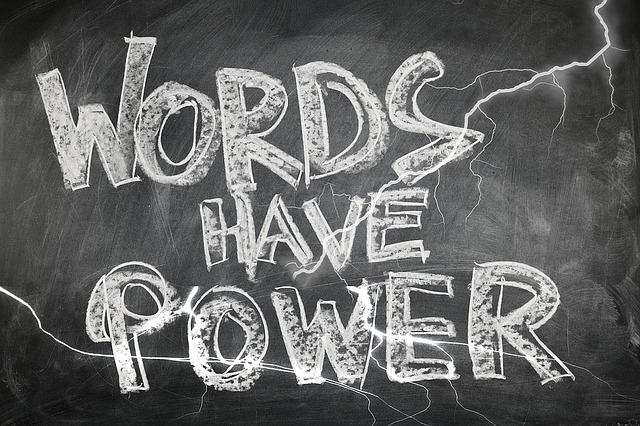
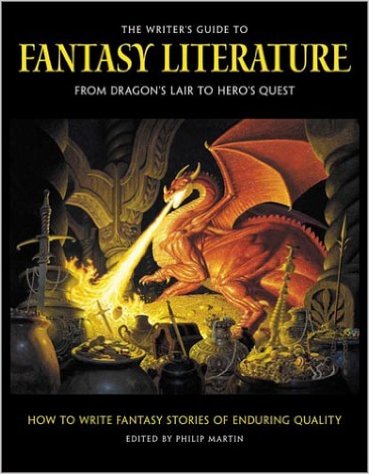

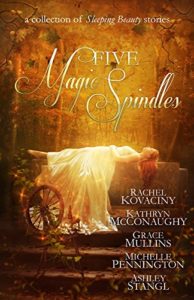
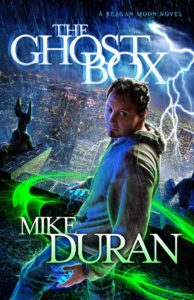
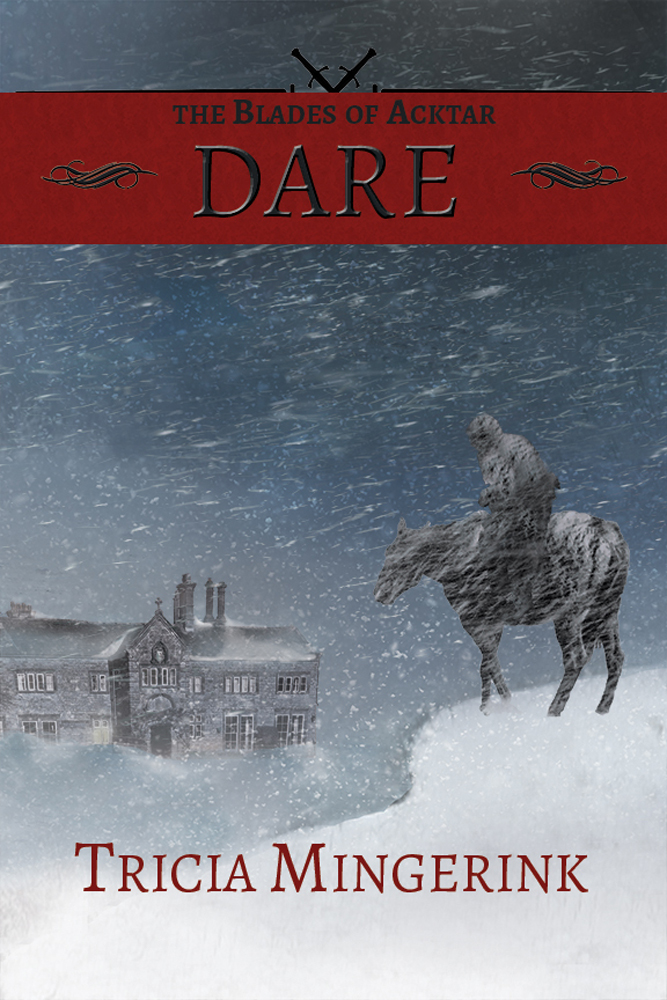
 I once heard a speaker say that good fiction mirrors reality. This can be easy to see in historical fiction or contemporary fiction. Of course it mirrors reality. Itâs our world, just a few non-real people and places thrown in. It could be real, under the right circumstances.
I once heard a speaker say that good fiction mirrors reality. This can be easy to see in historical fiction or contemporary fiction. Of course it mirrors reality. Itâs our world, just a few non-real people and places thrown in. It could be real, under the right circumstances.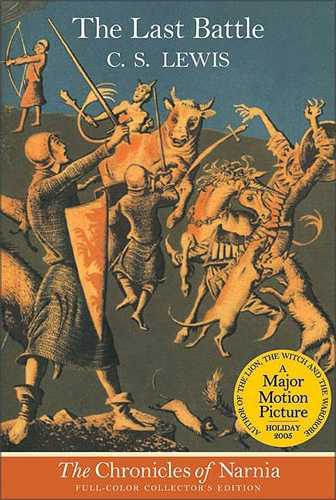 C.S. Lewis says it much better than I can at the end of The Last Battle:
C.S. Lewis says it much better than I can at the end of The Last Battle: 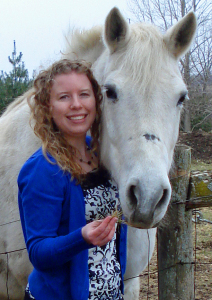
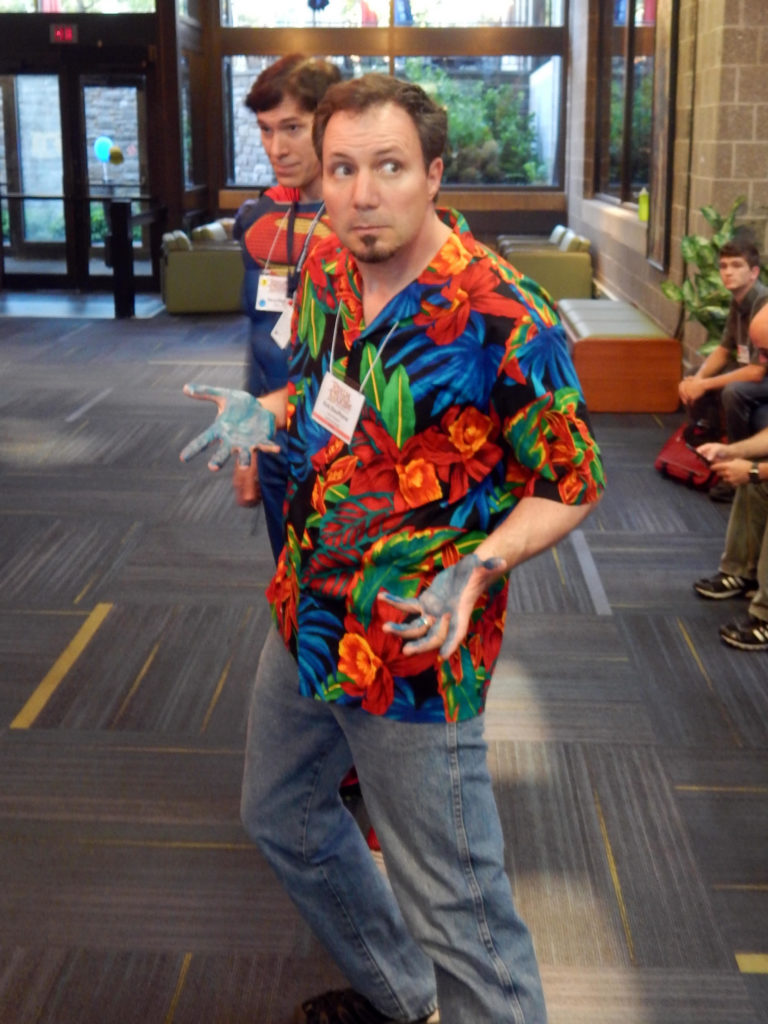


 however, many a book and movie and television episode goes by without one prayer sent heavenward. Given what is happening in these books and movies and episodes, you would think someone would be praying.
however, many a book and movie and television episode goes by without one prayer sent heavenward. Given what is happening in these books and movies and episodes, you would think someone would be praying. Never underestimate the old refuge of the nursery. Give a man ten minutes to write an article, G. K. Chesterton once said, and âhe will run screaming for refuge to the old nursery where he learnt his stalest proverbs.â There are other crises that will send us screaming for refuge to the old nursery, particularly if we havenât had much schooling on the relevant matter in the intervening years.
Never underestimate the old refuge of the nursery. Give a man ten minutes to write an article, G. K. Chesterton once said, and âhe will run screaming for refuge to the old nursery where he learnt his stalest proverbs.â There are other crises that will send us screaming for refuge to the old nursery, particularly if we havenât had much schooling on the relevant matter in the intervening years.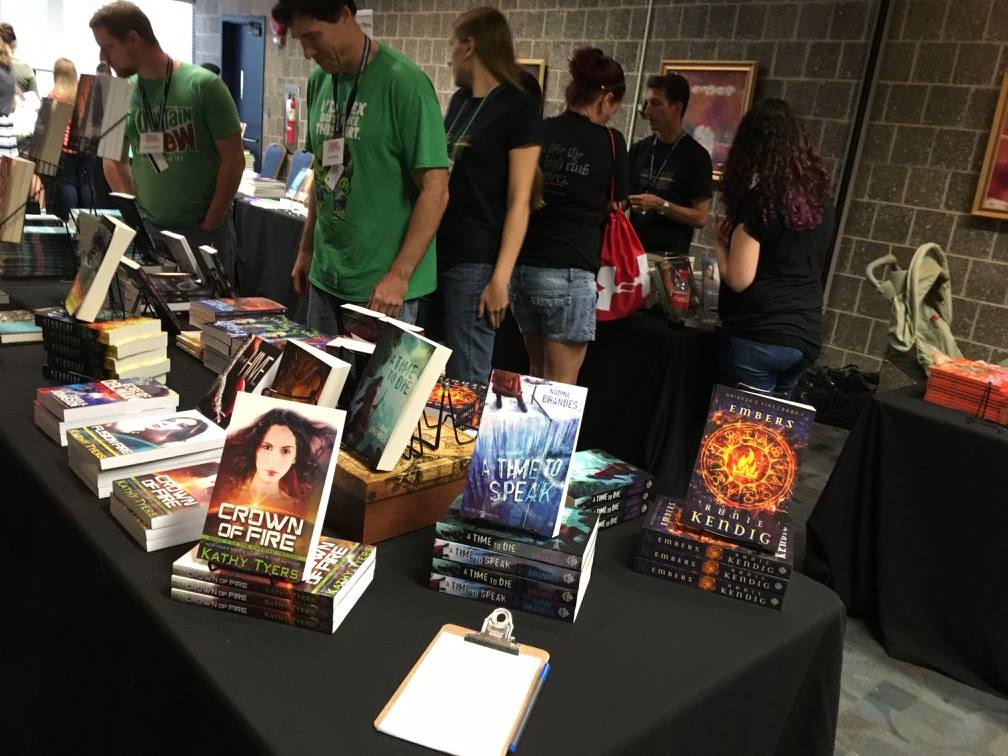


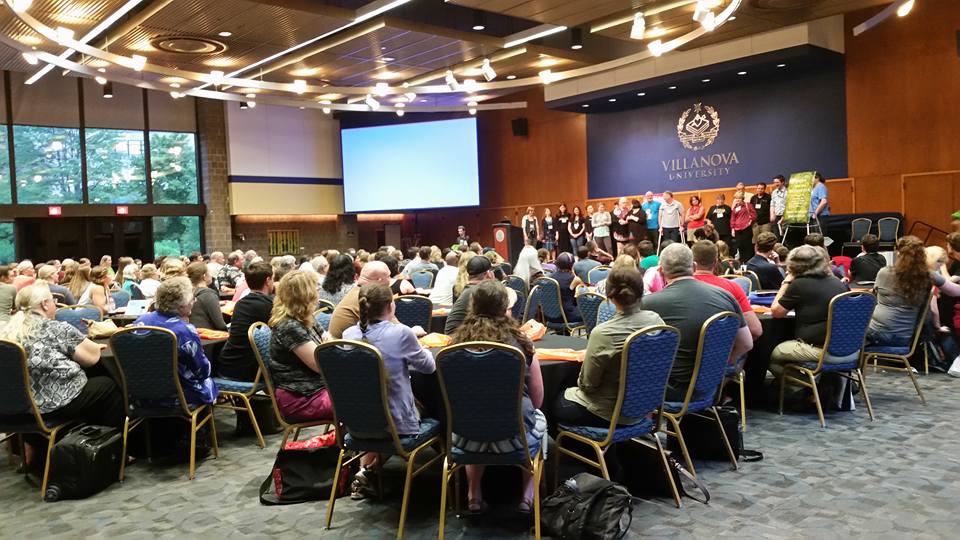
 Year four is in the books. Realm Makers, a writers’ conference for those with a speculative bent, combined with a faith-based worldview, is the brainchild of Becky Minor. Each of the conferences to date has been bigger and better.
Year four is in the books. Realm Makers, a writers’ conference for those with a speculative bent, combined with a faith-based worldview, is the brainchild of Becky Minor. Each of the conferences to date has been bigger and better.  Plans for next year are already in the works, and this time the conference will be moving west. As per Saturday’s
Plans for next year are already in the works, and this time the conference will be moving west. As per Saturday’s 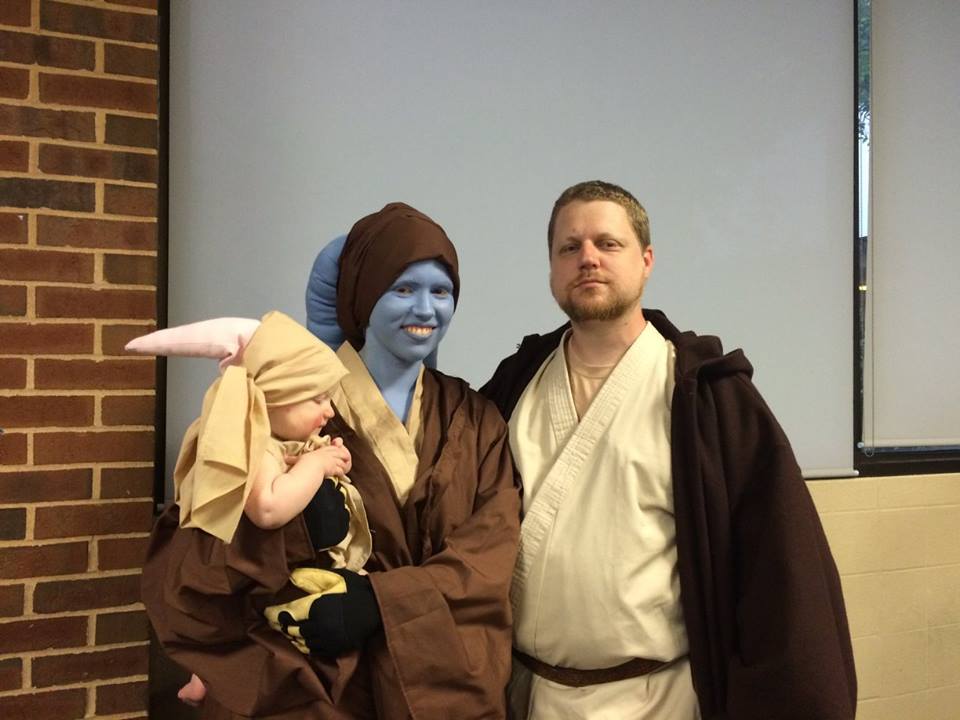


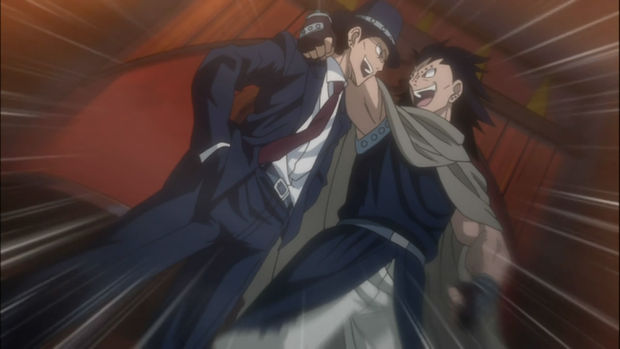
 Whoever is running for president whom you cannot stand, rest assured, I will not cosplay as her, him, or it. After all, I just couldnât. Itâs the hair, or that creepy stare, or that social position that is contrary to everything you believe in. But that other person, the candidate you absolutely adore, I would surely dress as that person. Assuming you like any of them.
Whoever is running for president whom you cannot stand, rest assured, I will not cosplay as her, him, or it. After all, I just couldnât. Itâs the hair, or that creepy stare, or that social position that is contrary to everything you believe in. But that other person, the candidate you absolutely adore, I would surely dress as that person. Assuming you like any of them. Iâm sure a more-professional fan who has actually attempted this cosplay could confirm otherwise. But from here it looks like No-Face is one of the easiest cosplays to manage:
Iâm sure a more-professional fan who has actually attempted this cosplay could confirm otherwise. But from here it looks like No-Face is one of the easiest cosplays to manage: 3. Gajeel
3. Gajeel 4. Iron Man with Hulkbuster⢠Armor
4. Iron Man with Hulkbuster⢠Armor 5. Someone from âGame of Thronesâ
5. Someone from âGame of Thronesâ 6. The Green Arrow
6. The Green Arrow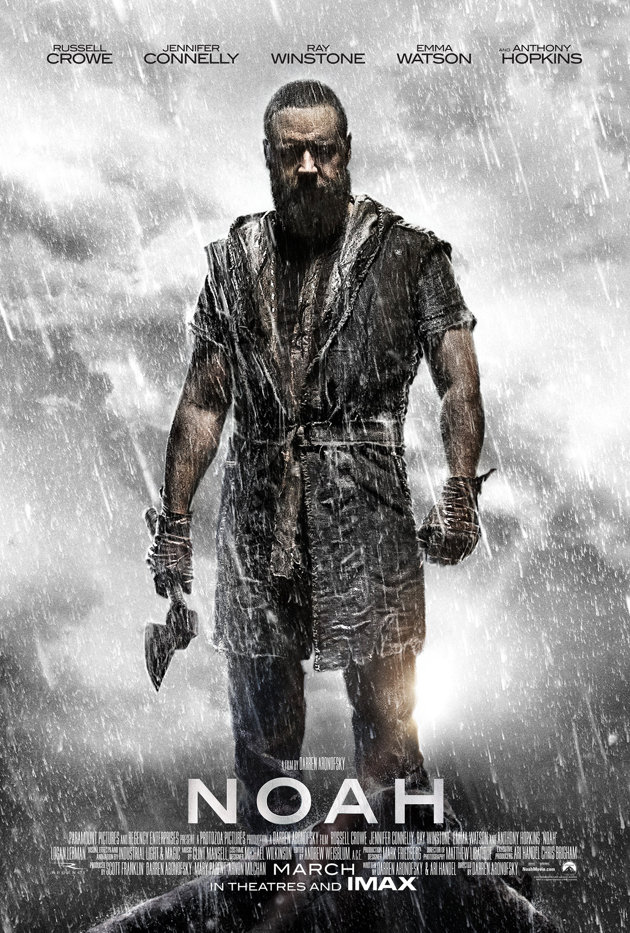
 9. Your pastor
9. Your pastor
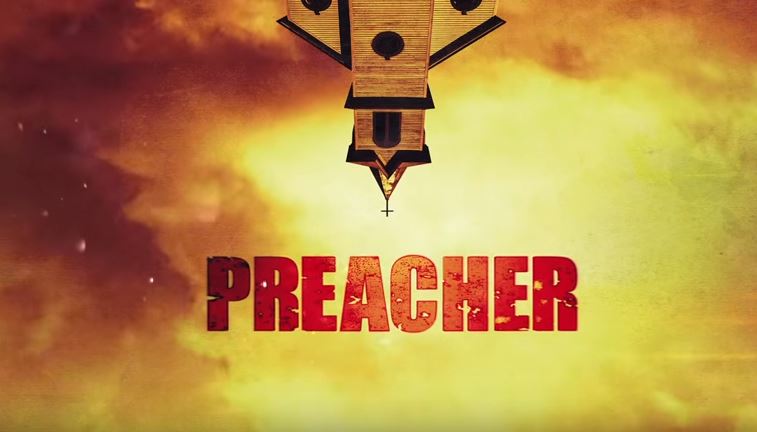

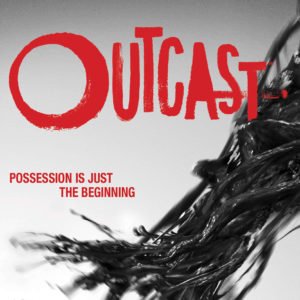
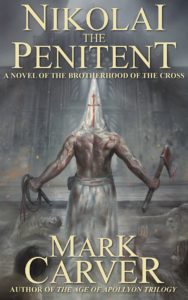 Please indulge a little self-promotion: my seventh novel Nikolai the Penitent released yesterday from The Crossover Alliance. The story follows a young man making his way through the nightmare world of medieval Germany during the Black Death plague. The genre is epic historical fiction, not speculative per se, though there are hints of the supernatural. It is a very grim and brutal story with strong mature content, but there is a message of hope and redemption buried beneath the horror and suffering. Available on
Please indulge a little self-promotion: my seventh novel Nikolai the Penitent released yesterday from The Crossover Alliance. The story follows a young man making his way through the nightmare world of medieval Germany during the Black Death plague. The genre is epic historical fiction, not speculative per se, though there are hints of the supernatural. It is a very grim and brutal story with strong mature content, but there is a message of hope and redemption buried beneath the horror and suffering. Available on 


